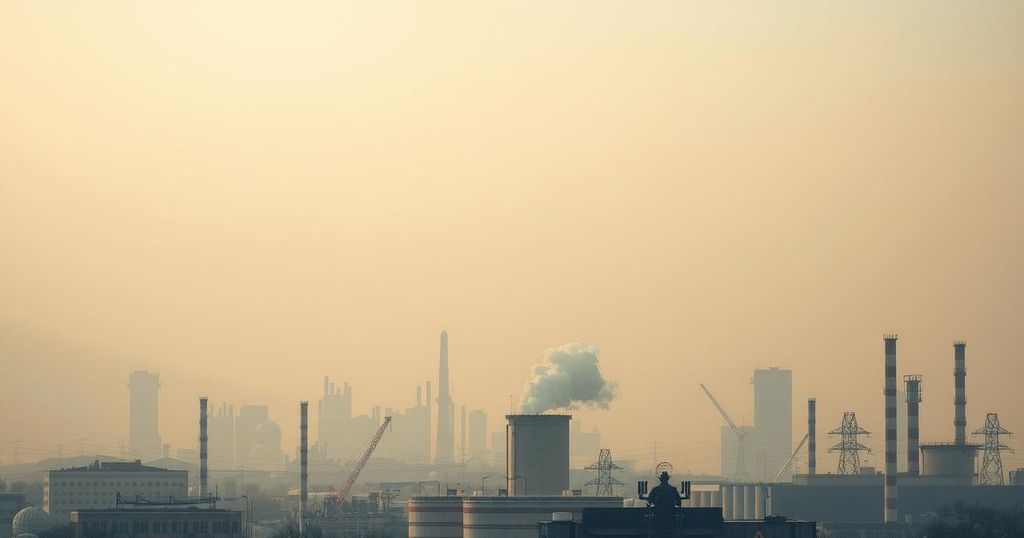Pakistan ranks as one of the top five most polluted countries globally, with PM2.5 levels exceeding WHO safety limits. The recent cessation of US air quality monitoring exacerbates this issue, leaving Pakistan at risk of insufficient pollution data. Climate change intensifies air quality deterioration, highlighting the urgent need for reliable data and stronger measures against pollution.
Recent data indicates that Pakistan remains among the world’s most affected countries by air pollution, specifically ranked within the top five globally alongside Chad, Bangladesh, the Democratic Republic of Congo, and India. The levels of hazardous particulate matter (PM2.5) present in Pakistan significantly exceed the World Health Organization’s (WHO) safe limit of 5 micrograms per cubic meter. Alarmingly, only 17% of global cities met this standard last year, reflecting a dire situation in Pakistan.
The persistent air pollution contributes to serious health issues and constitutes a major obstacle to initiatives aimed at improving the country’s air quality. Major cities, such as Lahore and Karachi, experience extreme pollution levels, especially during winter months when fog and industrial emissions exacerbate the already poor air conditions. Furthermore, Pakistan’s dependency on external monitoring has intensified its challenges.
Historically, the US State Department’s air quality sensors, positioned within diplomatic premises, offered vital real-time pollution data for regions including Pakistan. However, this monitoring program concluded recently due to budgetary limitations, leaving a significant void in accurate pollution tracking. This development increases the vulnerability of countries like Pakistan in terms of addressing air quality issues.
Christi Chester-Schroeder of IQAir emphasized the implications of this lapse in monitoring, stating that the loss of these stations is detrimental for regions where air quality data is scarce. As global pollution continues to escalate, climate change compounds these challenges, as rising temperatures can lead to more severe and prolonged forest fires, particularly in South East Asia and South America, further deteriorating air quality.
The cessation of the US air quality program is projected to impact around 34 countries, including Pakistan. Christa Hasenkopf from the University of Chicago has underscored the significance of losing such resources, branding it a substantial setback for global air quality efforts. With the dual challenges of climate change and the withdrawal of crucial monitoring resources, Pakistan faces a daunting struggle against its smog crisis, underscoring the immediate need for reliable air quality data and enhanced pollution regulations.
In summary, Pakistan grapples with alarming air pollution levels, significantly surpassing WHO standards. The country’s situation is exacerbated by the discontinuation of US air quality monitoring, leaving it vulnerable and data-deficient. Climate change further complicates this issue, necessitating urgent action and reliable data to combat the ongoing smog crisis and improve public health.
Original Source: tribune.com.pk




